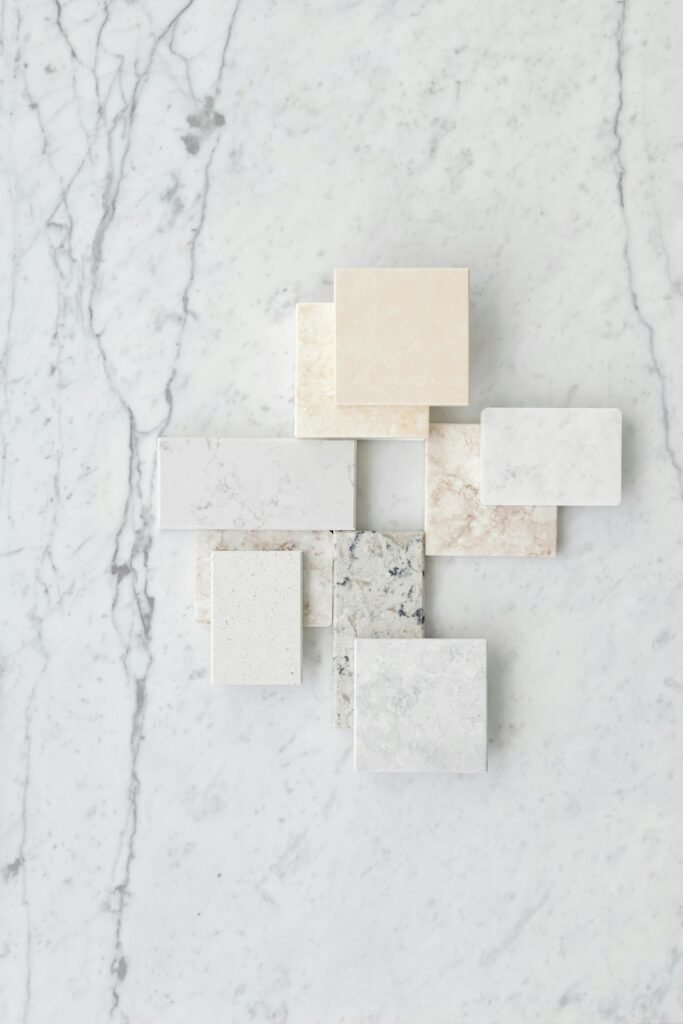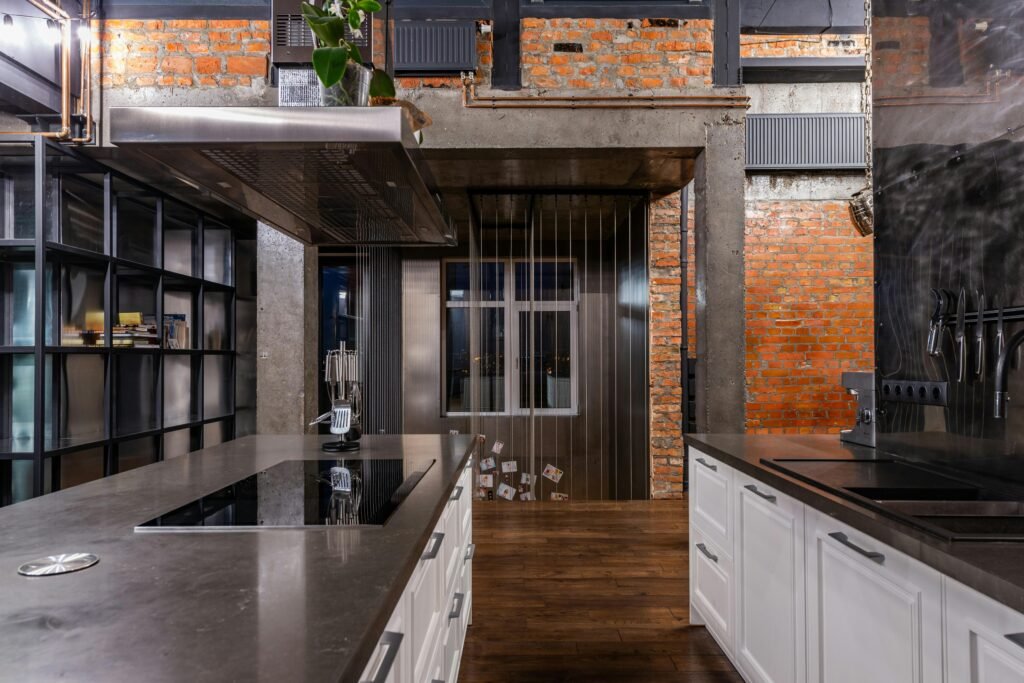
Best Quartz Worktops for Kitchen: Your Ultimate Guide

Why Choose Quartz Worktops for Your Kitchen?
Quartz worktops are an engineered surface made from a combination of natural quartz, resins, and pigments, resulting in a non-porous, highly durable countertop material. This composition makes quartz a great choice for kitchens, as it is resistant to stains, scratches, and heat. Unlike natural stones like granite and marble, quartz does not require regular sealing, making it an ideal low-maintenance option.
- Durability: Scratch-resistant and impact-resistant, quartz is built to withstand the daily wear and tear of a busy kitchen.
- Wide Range of Colors and Patterns: Quartz comes in a variety of shades, patterns, and finishes, from sleek and modern whites and grays to realistic veining that mimics marble.
- Easy Maintenance: Non-porous and hygienic, quartz surfaces are easy to clean with mild soap and water.
With these advantages, it’s no wonder that quartz has become a favorite among homeowners. But with so many brands and styles available, choosing the best quartz kitchen worktop can still be a challenge.
Brands For Best Quartz Worktops
The quality of quartz worktops can vary significantly depending on the brand, so it’s worth exploring top-rated manufacturers known for their craftsmanship and material quality. Here are a few leading brands:
- Caesarstone
Caesarstone is known for its wide selection of colors and textures, as well as its reputation for quality. With collections that range from bold, modern designs to timeless, natural looks, Caesarstone offers options for every kitchen style.
- Silestone
Silestone is another highly respected brand, especially for its cutting-edge manufacturing techniques. They offer several unique colors and patterns, including those with marble-like veining, which is perfect for homeowners wanting a luxurious look.
- Cambria
Cambria is a luxury quartz brand from the United States, offering unique designs that are only available through this brand. Their collections focus heavily on natural stone-inspired patterns, ideal for adding elegance to your kitchen.
Each of these brands brings something unique to the table, so consider the style, color, and budget that best suit your needs when choosing the right quartz countertop for your kitchen.
Quartz vs. Other Worktop Materials
Choosing quartz often comes down to how it compares to other popular kitchen worktop materials. Here’s a quick comparison with some of the most common alternatives:
| Feature | Quartz | Granite | Marble |
| Durability | High | High | Medium |
| Maintenance | Low | Medium (needs sealing) | High (needs sealing) |
| Non-Porosity | Yes | No | No |
| Cost | Medium-High | Medium | High |
| Color Options | Extensive | Limited | Limited |
Quartz vs. Granite: Granite is durable and natural, but requires sealing to prevent staining. Quartz, on the other hand, is non-porous, making it more resistant to moisture and bacteria.
Quartz vs. Marble: Marble is elegant and has unique veining, but it’s prone to scratches and stains. Quartz mimics marble’s look without the same level of maintenance.
Popular Quartz Worktop Colors and Design Options
One of the key advantages of quartz countertops for kitchens is the variety of design options available. Some popular choices include:
- Classic Whites and Greys: White and gray quartz worktops remain some of the most popular choices for their clean, modern look. These shades pair well with almost any cabinet color.
- Veined Quartz: For a luxurious look, many homeowners choose quartz that mimics the natural veining of marble. Veined quartz worktops add elegance to the kitchen and are perfect for modern, rustic, and classic styles alike.
- Bold Dark Colors: For a more dramatic statement, consider darker shades like deep gray, black, or blue. Dark quartz countertops pair beautifully with light cabinets, creating a striking contrast.
How Much Do Quartz Kitchen Worktops Cost?
The cost of quartz worktops varies depending on several factors, such as brand, thickness, color, and finish. On average, quartz worktops range from £250 to £600 per square meter, though premium brands like Cambria may cost more. Here’s a breakdown of common factors that impact cost:
- Thickness: Thicker quartz worktops, such as 30mm, typically cost more than standard 20mm options.
- Edge Profile: Custom edge profiles, such as bullnose or beveled edges, can also add to the overall cost.
- Installation: Professional installation is crucial for quartz worktops, so ensure this is included in your budget.
Compared to granite or marble, quartz is generally priced in the mid-to-high range. However, its durability and low maintenance requirements make it an investment that offers long-term value.
Installation and Customization Options
Quartz is highly customizable, allowing you to select from a variety of edge styles, thicknesses, and integrated features. Some popular customization options include:
- Edge Profiles: Choose from simple square edges to more decorative edges like bullnose or ogee for a personalized look.
- Integrated Features: With quartz, you can add features like an under-mount sink or matching backsplash for a seamless, cohesive look.
For installation, it’s essential to work with professionals experienced in quartz, as improper handling can lead to chipping or other issues.
Maintenance and Care Tips
One of the greatest advantages of quartz kitchen worktops is their ease of maintenance. Here’s how to keep your worktop looking like new:
- Daily Cleaning: Wipe with mild soap and water. Avoid abrasive cleaners, which could dull the surface.
- Heat Protection: While quartz is heat-resistant, it’s best to use trivets or heat pads to prevent any damage.
- Avoid Harsh Chemicals: Strong chemicals, such as bleach, should be avoided to maintain the worktop’s finish.
Following these simple tips will keep your quartz worktop looking pristine for years to come.
FAQs
- Which are the best quartz countertop brands, and who makes the highest quality worktops?
Leading quartz brands like Caesarstone, Cambria, and Silestone are recognized for quality and durability. Known for advanced manufacturing and beautiful designs, these brands provide long-lasting surfaces ideal for kitchens, offering great warranties and a wide color range. - How can I choose the right quartz worktop for my kitchen?
Consider color, thickness, brand reputation, and budget. Choose a brand with strong customer reviews, a finish that complements your kitchen style, and durability that meets daily needs. Look for warranties and compare design options for the best fit. - Is quartz better quality than granite for kitchen countertops?
Quartz is often more practical than granite for kitchens. It’s non-porous, stain-resistant, and doesn’t require sealing, unlike granite. Durable and scratch-resistant, quartz is a low-maintenance choice, ideal for high-traffic areas, though it’s slightly less heat-resistant. - What are the most popular colors and finishes for quartz kitchen worktops?
Quartz worktops come in shades like classic whites, greys, and blacks, with options that mimic marble veining for a luxurious look. Matte, polished, and textured finishes are popular, catering to modern, rustic, and minimalist kitchen designs.
Search
Recent Posts



